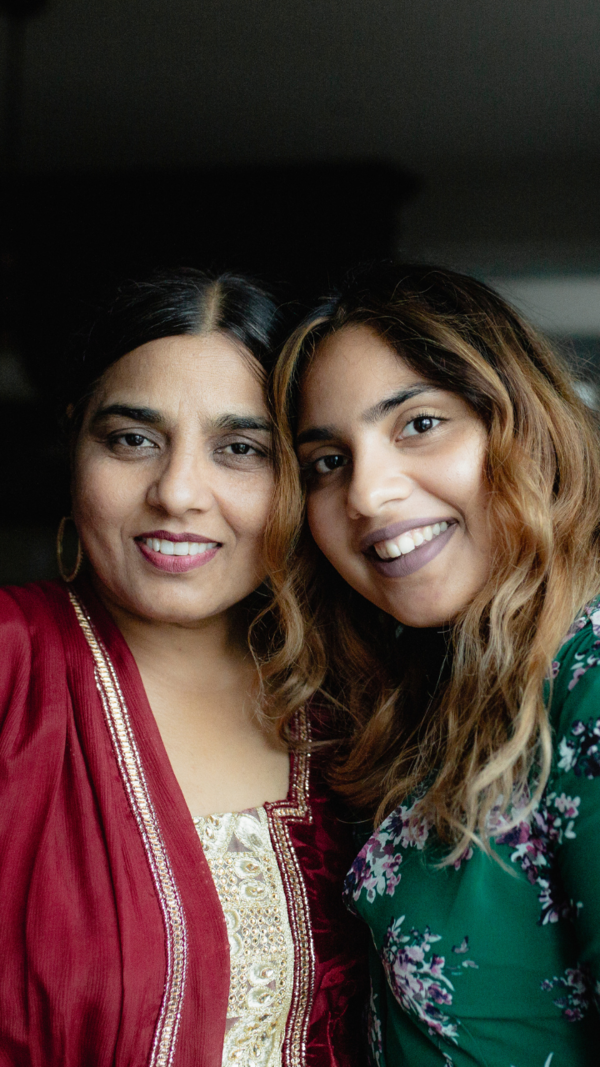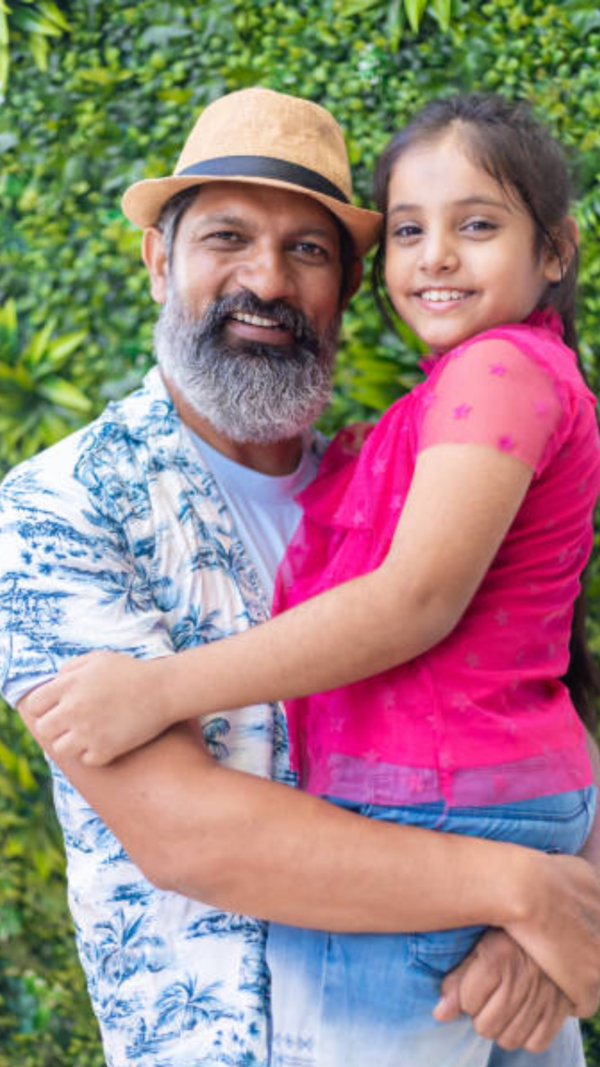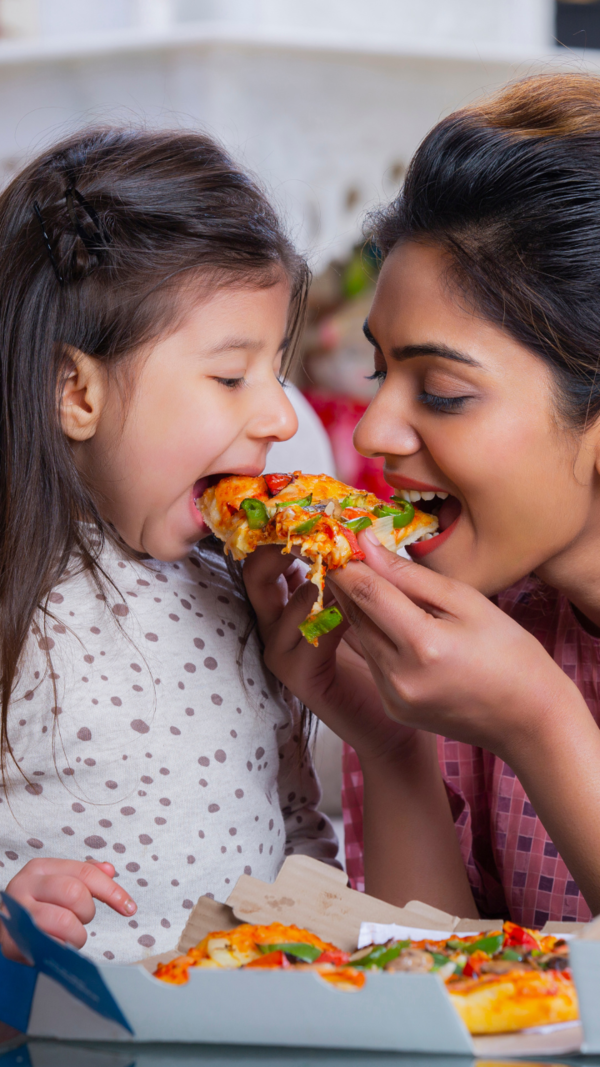Trending
Pune Porsche case shows we may be taking yes-parenting too far
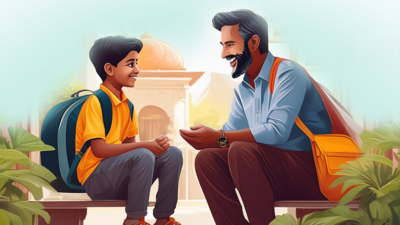
Recent case of drunk teen makes one wonder whether things would have been different if his dad had refused to give in to his demands. But whether it’s a smartphone or keys to a luxury car, modern-day parents struggle with being strict. So when and how should parents say No?
Three weeks ago, an allegedly drunk 17-year-old boy from Pune rammed the Porsche he was driving at 200kmph into a bike, killing two 24-year-old techies on the spot.The boy, son of a prominent builder, had apparently gone out with friends to celebrate his Class 12 results. His grandfather, after consulting the father, had handed over a credit card and the luxury sedan’s keys to the boy who reportedly spent Rs 69,000 on liquor at two pubs before wanting to drive himself home. The driver claims he called the dad to ask whether he should give the car keys or not. The father said yes. The crash occurred minutes later.
What if the dad had said a firm no and asked the driver to not hand the Porsche key to his son? What if he had said no for giving a credit card and instead given a small amount of cash for just a drink or two? Maybe the son would have listened or maybe not. Perhaps, the victims Aneesh Awadhiya and Ashwini Koshta would still be alive today.
While not every nod given by a parent leads to dire consequences, one thing that stands out in modern-day parenting is the reluctance to say no.

Unlike parents of the previous generations who used to coolly pronounce a no — often even before the child had finished his sentence — young moms and dads these days hate to disappoint their ‘laadla bachchas’. Whether it is a two-year-old who wants yet another toy or a teen’s demand for the latest iPhone, parents often give in easily. The desire to avoid the two-letter word is so strong that parenting sites even offer articles on the ‘10 ways to say no to your kid without saying no’ and ‘Five positive words to use instead of no’.
Parenting experts say the struggle to say no starts from the time the child is a baby. As families get smaller, kids tend to be treated like mini royalty. Toddler meltdowns and door slamming by teens make parents tread even more cautiously. Priyanshi, the four-year-old daughter of Delhi-based Archana and Amit Srivastav, is so used to getting her way that her lower lip curls out, eyes fill up and skin turns beetroot-red the moment she hears someone say no to her. Amit melts and quickly hands over the fourth cookie she has demanded. “I know the cookies are filled with sugar and she will barely eat lunch, but I just can’t say no to that innocent face,” he says. The couple often argue about this, especially as Amit recently started singing “noi, noi, noi” instead of saying no when he had to stop Priyanshi from jumping on the sofa. “It is ridiculous. Amit has become so allergic to saying no he sings it now. What’s the big deal, let her cry if she wants? As parents it is our duty to stop her,” says Archana.
Mom of two boys Priti Jha too struggles with no these days. “I used to say no without a second thought when Reyansh, my older one, was little but now that he is 12-plus, I think ten times. A fear has crept in my mind… I worry that my relationship with him will get strained and he may in any case go ahead and do what he wants without keeping me in the loop,” she says.

Are we scared of our kids?
The fear of ruining one’s relationship with the child is often the root cause of yes-parenting, say experts. “There is a lot of guilt among parents nowadays. Parents feel bad about being too busy with their own careers or social lives, and not giving enough quality time to their kids so they overcompensate by agreeing to all the demands,” says parent coach and educationist Pallavi Chaturvedi. “Look at the teens today. They all have add-on credit cards.”
Child psychiatrist Dr Sapna Bangar points out that parents are also striving to be different from their own authoritarian parents. “Our parents and teachers used to say no and that was the final word. And that felt very unfair to us, so some of us are now going to the other extreme,” she says. Chaturvedi says that some parents don’t realise that by pampering their kids and “showing them love or giving them all that you didn’t have in your childhood, you’re actually setting them up for failure.”
Bharati Singh, author of a children’s storybook titled ‘No is a Good Word’, points out that the new wave of gentle parenting has put additional pressure on parents as they don’t want to be looked upon as too strict. “The current generation of parents were first scared of their own parents and now they seem scared of their own children,” she says.
The ‘self-esteem movement’ (where anything that can hurt a child’s self-esteem is frowned upon) is also making parents reluctant to say no. Renowned lawyer-activist Abha Singh blames peer pressure for the eager-to-please attitude of parents. “Peer pressure makes children have complexes. Even if parents don’t want to give something, they buckle down so that the child does not feel left out. They feel they must host parties in five-star hotels, buy expensive cars and latest phones.”

Considering it is not ideal to be too strict or too soft, experts say parents must choose their yes and no moments wisely. Mumbai mom Reema Makhija tries to strike the right balance. “When I am not giving permission for something today, I can at least remind that I had allowed him something yesterday. I also make it a point to hear Sian’s views before making a decision,” she says. “It’s not a war which I have to win all the time because I’m an adult.”
Singh does the same. “My parents were very strict and they used to say no a lot and I used to feel cheated because there was not much communication. So, I do explain my reasons to my daughter, but I don’t overexplain. Sometimes a no is a no. I tell her that this is my house so we have to follow my rules. When she grows up, she can have her own house rules,” she says. Sometimes, her daughter realises her demand was unjustified and even appreciates Singh for stopping her.
Singh wishes people would stop considering no a bad word. “We should have the confidence to say no when required. The sooner you stand your ground and show that you are the decision maker as the parent, the less you have to keep fighting as the kids grow older,” she says.
Chaturvedi feels parents often forget that their role is not to look cool or be friends with their child. “Our role is to guide children, teach them the right principles and reign them in when required,” she says.
Dr Bangar advocates saying no to children as often as required, but with a valid reason. “It’s important for kids to know we are not saying no because of our whims and fancies. Our job is to teach kids what’s right and wrong and train them to make the right decisions in future, even when we are not there to guide them. If you’re saying no to chocolate, you have to tell the child it leads to cavities,” she says. The tone in which parents are saying no also makes a big difference.
Counsellors point out that moms and dads tend to forget that no may cause a little pain in the short-term but it is beneficial in the long run. “I can guarantee you that sometimes saying no will be the most wonderful gift you can give your kids. It establishes boundaries and it teaches them to weather an experience that is a part of life,” observes Rachel Marie Martin, founder of social media community Finding Joy, in her HuffPost article titled ‘I desperately wanted to be a Yes mum. I’m a better mum when I say no’.
Hearing no also teaches kids to say no which is an important life skill. Many people face difficulty in saying no to their friends, spouses, bosses and colleagues and end up doing things they don’t agree with. “Kids learn best by imitating. If we assert our no to them, they too do the same when they step out in the world and need to say no for something,” says Singh. “If we respect our kids and still manage to say no, we are doing them a favour.”
Jha understands this and is prepared to be a ‘bad mom’ if required. “I don’t care if my sons think I don’t love them. If they are about to do something harmful, I will stop them. I truly believe that a parent’s scolding can act like a vaccine to protect the child.”
Dr Bangar believes it is when parents ignore small mistakes in childhood that things escalate and ‘blow up’ when the child is older. “It is important for parents to make it clear to kids that there will be consequences for their actions. If we overlook little things in the beginning, problems can arise in the future,” she says, adding that parents should take away privileges rather than give punishments (change WiFi password, cancel a shopping trip or ban a party) to teach lessons.
Parenting coaches say the Pune incident should serve as a wake-up call for parents. “Rich kids, posh schools, unlimited spending money, over-indulgent parents, so many distractions out there and we wonder why some rich kids turn into entitled souls,” asks Chaturvedi, adding that a child is “born as a blank slate” so it is a parent’s duty to raise them to be well-grounded and empathetic individuals who understand the difference between right and wrong.
Experts observe that parents often unknowingly teach their kids that it is okay to break the law (by jumping signals, parking at a ‘no parking zone’) as long as one gets away with it. “What makes it worse is that some parents brag about it,” says Bangar.
Makhija feels it is very challenging for parents to always be right, whether they are saying a yes or a no. “When I read about the Pune incident, my heart went out to the parents. If you don’t allow your 17-year-old to go for a night-out, he will still go without telling you. These parents at least sent the driver. And, they apparently received a call at 2am and had to decide if they should let their son drive. That also makes me think of the number of times when Sian calls me when I am in office. Sometimes, my mind is thinking about 10 other things. One may not think while saying okay that it will lead to something like this,” she says.
Three weeks ago, an allegedly drunk 17-year-old boy from Pune rammed the Porsche he was driving at 200kmph into a bike, killing two 24-year-old techies on the spot.The boy, son of a prominent builder, had apparently gone out with friends to celebrate his Class 12 results. His grandfather, after consulting the father, had handed over a credit card and the luxury sedan’s keys to the boy who reportedly spent Rs 69,000 on liquor at two pubs before wanting to drive himself home. The driver claims he called the dad to ask whether he should give the car keys or not. The father said yes. The crash occurred minutes later.
What if the dad had said a firm no and asked the driver to not hand the Porsche key to his son? What if he had said no for giving a credit card and instead given a small amount of cash for just a drink or two? Maybe the son would have listened or maybe not. Perhaps, the victims Aneesh Awadhiya and Ashwini Koshta would still be alive today.
While not every nod given by a parent leads to dire consequences, one thing that stands out in modern-day parenting is the reluctance to say no.
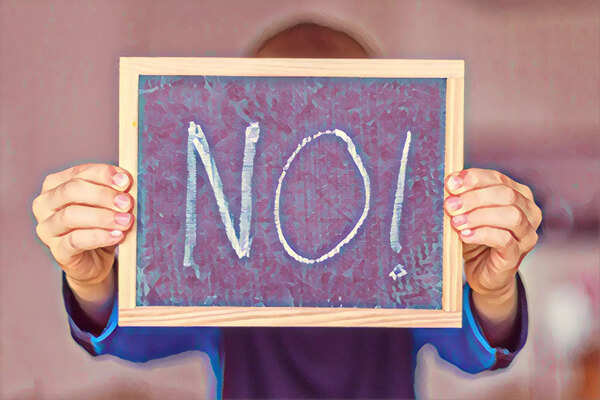
Unlike parents of the previous generations who used to coolly pronounce a no — often even before the child had finished his sentence — young moms and dads these days hate to disappoint their ‘laadla bachchas’. Whether it is a two-year-old who wants yet another toy or a teen’s demand for the latest iPhone, parents often give in easily. The desire to avoid the two-letter word is so strong that parenting sites even offer articles on the ‘10 ways to say no to your kid without saying no’ and ‘Five positive words to use instead of no’.
Parenting experts say the struggle to say no starts from the time the child is a baby. As families get smaller, kids tend to be treated like mini royalty. Toddler meltdowns and door slamming by teens make parents tread even more cautiously. Priyanshi, the four-year-old daughter of Delhi-based Archana and Amit Srivastav, is so used to getting her way that her lower lip curls out, eyes fill up and skin turns beetroot-red the moment she hears someone say no to her. Amit melts and quickly hands over the fourth cookie she has demanded. “I know the cookies are filled with sugar and she will barely eat lunch, but I just can’t say no to that innocent face,” he says. The couple often argue about this, especially as Amit recently started singing “noi, noi, noi” instead of saying no when he had to stop Priyanshi from jumping on the sofa. “It is ridiculous. Amit has become so allergic to saying no he sings it now. What’s the big deal, let her cry if she wants? As parents it is our duty to stop her,” says Archana.
Mom of two boys Priti Jha too struggles with no these days. “I used to say no without a second thought when Reyansh, my older one, was little but now that he is 12-plus, I think ten times. A fear has crept in my mind… I worry that my relationship with him will get strained and he may in any case go ahead and do what he wants without keeping me in the loop,” she says.
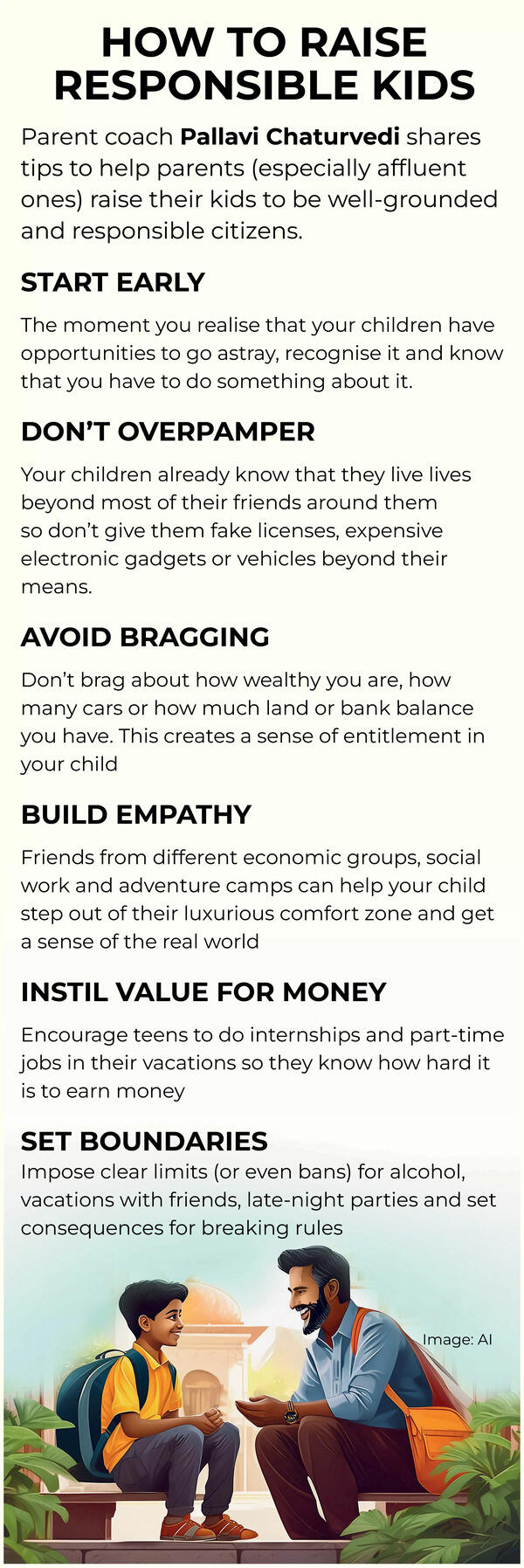
Are we scared of our kids?
The fear of ruining one’s relationship with the child is often the root cause of yes-parenting, say experts. “There is a lot of guilt among parents nowadays. Parents feel bad about being too busy with their own careers or social lives, and not giving enough quality time to their kids so they overcompensate by agreeing to all the demands,” says parent coach and educationist Pallavi Chaturvedi. “Look at the teens today. They all have add-on credit cards.”
Child psychiatrist Dr Sapna Bangar points out that parents are also striving to be different from their own authoritarian parents. “Our parents and teachers used to say no and that was the final word. And that felt very unfair to us, so some of us are now going to the other extreme,” she says. Chaturvedi says that some parents don’t realise that by pampering their kids and “showing them love or giving them all that you didn’t have in your childhood, you’re actually setting them up for failure.”
Bharati Singh, author of a children’s storybook titled ‘No is a Good Word’, points out that the new wave of gentle parenting has put additional pressure on parents as they don’t want to be looked upon as too strict. “The current generation of parents were first scared of their own parents and now they seem scared of their own children,” she says.
The ‘self-esteem movement’ (where anything that can hurt a child’s self-esteem is frowned upon) is also making parents reluctant to say no. Renowned lawyer-activist Abha Singh blames peer pressure for the eager-to-please attitude of parents. “Peer pressure makes children have complexes. Even if parents don’t want to give something, they buckle down so that the child does not feel left out. They feel they must host parties in five-star hotels, buy expensive cars and latest phones.”
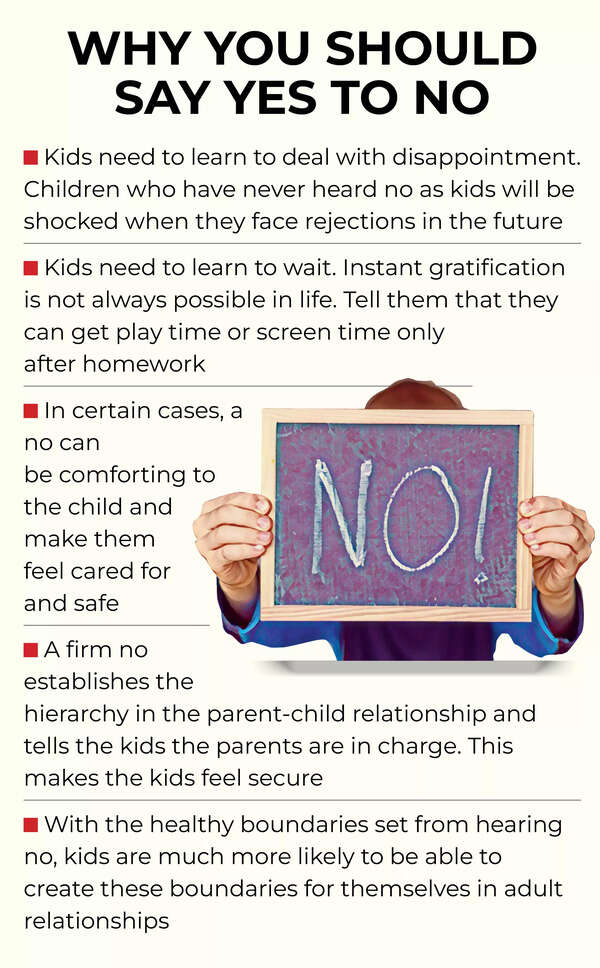
Know when to say no
Considering it is not ideal to be too strict or too soft, experts say parents must choose their yes and no moments wisely. Mumbai mom Reema Makhija tries to strike the right balance. “When I am not giving permission for something today, I can at least remind that I had allowed him something yesterday. I also make it a point to hear Sian’s views before making a decision,” she says. “It’s not a war which I have to win all the time because I’m an adult.”
Singh does the same. “My parents were very strict and they used to say no a lot and I used to feel cheated because there was not much communication. So, I do explain my reasons to my daughter, but I don’t overexplain. Sometimes a no is a no. I tell her that this is my house so we have to follow my rules. When she grows up, she can have her own house rules,” she says. Sometimes, her daughter realises her demand was unjustified and even appreciates Singh for stopping her.
Singh wishes people would stop considering no a bad word. “We should have the confidence to say no when required. The sooner you stand your ground and show that you are the decision maker as the parent, the less you have to keep fighting as the kids grow older,” she says.
Chaturvedi feels parents often forget that their role is not to look cool or be friends with their child. “Our role is to guide children, teach them the right principles and reign them in when required,” she says.
Dr Bangar advocates saying no to children as often as required, but with a valid reason. “It’s important for kids to know we are not saying no because of our whims and fancies. Our job is to teach kids what’s right and wrong and train them to make the right decisions in future, even when we are not there to guide them. If you’re saying no to chocolate, you have to tell the child it leads to cavities,” she says. The tone in which parents are saying no also makes a big difference.
No can be a gift
Counsellors point out that moms and dads tend to forget that no may cause a little pain in the short-term but it is beneficial in the long run. “I can guarantee you that sometimes saying no will be the most wonderful gift you can give your kids. It establishes boundaries and it teaches them to weather an experience that is a part of life,” observes Rachel Marie Martin, founder of social media community Finding Joy, in her HuffPost article titled ‘I desperately wanted to be a Yes mum. I’m a better mum when I say no’.
Hearing no also teaches kids to say no which is an important life skill. Many people face difficulty in saying no to their friends, spouses, bosses and colleagues and end up doing things they don’t agree with. “Kids learn best by imitating. If we assert our no to them, they too do the same when they step out in the world and need to say no for something,” says Singh. “If we respect our kids and still manage to say no, we are doing them a favour.”
Jha understands this and is prepared to be a ‘bad mom’ if required. “I don’t care if my sons think I don’t love them. If they are about to do something harmful, I will stop them. I truly believe that a parent’s scolding can act like a vaccine to protect the child.”
Dr Bangar believes it is when parents ignore small mistakes in childhood that things escalate and ‘blow up’ when the child is older. “It is important for parents to make it clear to kids that there will be consequences for their actions. If we overlook little things in the beginning, problems can arise in the future,” she says, adding that parents should take away privileges rather than give punishments (change WiFi password, cancel a shopping trip or ban a party) to teach lessons.
A lesson for parents
Parenting coaches say the Pune incident should serve as a wake-up call for parents. “Rich kids, posh schools, unlimited spending money, over-indulgent parents, so many distractions out there and we wonder why some rich kids turn into entitled souls,” asks Chaturvedi, adding that a child is “born as a blank slate” so it is a parent’s duty to raise them to be well-grounded and empathetic individuals who understand the difference between right and wrong.
Experts observe that parents often unknowingly teach their kids that it is okay to break the law (by jumping signals, parking at a ‘no parking zone’) as long as one gets away with it. “What makes it worse is that some parents brag about it,” says Bangar.
Makhija feels it is very challenging for parents to always be right, whether they are saying a yes or a no. “When I read about the Pune incident, my heart went out to the parents. If you don’t allow your 17-year-old to go for a night-out, he will still go without telling you. These parents at least sent the driver. And, they apparently received a call at 2am and had to decide if they should let their son drive. That also makes me think of the number of times when Sian calls me when I am in office. Sometimes, my mind is thinking about 10 other things. One may not think while saying okay that it will lead to something like this,” she says.
End of Article
FOLLOW US ON SOCIAL MEDIA

